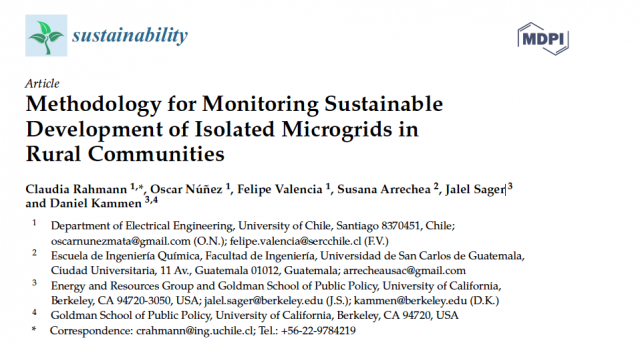Abstract: Microgrids are a rapidly evolving and increasingly common form of local power generation
used to serve the needs of both rural and urban communities. In this paper, we present a methodology
to evaluate the evolution of the sustainability of stand-alone microgrids projects. The proposed
methodology considers a composite sustainability index (CSI) that includes both positive and negative
impacts of the operation of the microgrid in a given community. The CSI is constructed along
environmental, social, economic and technical dimensions of the microgrid. The sub-indexes of
each dimension are aggregated into the CSI via a set of adaptive weighting factors, which indicate
the relative importance of the corresponding dimension in the sustainability goals. The proposed
methodology aims to be a support instrument for policy makers especially when defining sound
corrective measures to guarantee the sustainability of small, isolated microgrid projects. To validate
the performance of the proposed methodology, a microgrid installed in the northern part of Chile
(Huatacondo) has been used as a benchmarking project.
